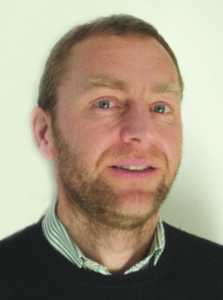 Saul Miller is a GP in Belford, Northumberland
Saul Miller is a GP in Belford, Northumberland
It started out as a moan between GP trainers.
First off was the complaint about how difficult it is to get men with sexual health concerns to consult female trainees.
‘How are you meant to gain competence if chaps choose to see male doctors mostly? Is it fair to restrict their choice?’
The conversation moved onto the difficulties male trainees have with gaining experience of women’s sexual health problems. All agreed that is more difficult still.
‘It sometimes feels like coercion, trying to find women who will agree to see them when in your heart you sense that even those women who agree might prefer they had not been asked at all,’ said one of the group.
That drew everyone back to the structural problems of GP training itself. None felt spending half the time in semi-randomly allocated hospital posts is driven by any kind of educational imperative. Male trainees spending time in obstetrics and gynaecology helps overcomes those difficulties with patient choice in primary care, it was noted, though with much irony. No-one felt female trainees would benefit enough from working in urology. All felt the structure of GP training still underscores the prejudice against primary care within medicine.
One said: ‘I don’t want to be called a consultant, I’d far rather there was parity of training opportunity instead, both in kudos and design.’
That got broad agreement. Eighteen months of genuine, in situ GP training is an improvement from the twelve months most of us received but woeful preparation even so.
Someone pointed out we’d only been talking about gender health issues as male-female and it’s all rather more complicated than that.
…there are so many possible sexuality-related ways of being discriminatory that the acronym itself becomes absurd unless at some point we all just accept the need for an etcetera.
There was a bit of chat about this: the evolution from assertions of lesbian and gay rights to the rise of the acronym LGB which then morphed into LGBT and onwards towards LBGTQIA2S+. The final plus sign seemed to us to represent recognition that there are so many possible sexuality-related ways of being discriminatory that the acronym itself becomes absurd unless at some point we all just accept the need for an etcetera. We agreed that solution is problematic for those who feel their particular situation is in that also-ran category however, never explicitly acknowledged. Presumably this is why the acronym keeps lengthening.
The conversation ended with one of the group wondering aloud if GPs should campaign on an anti-discriminatory platform.
Another, more recent conversation was about the headlong drive towards triage systems. The underlying idea of these is categorisation of patients and their needs in order to divert to alternative provision than GP consultations where possible.
‘Knowing how to help patients who do not know whose help they need has always been a key part of our role,’ the first speaker said. ‘In handing over that role to computerised triage, we lose expertise in some things, but we will not necessarily notice what goes missing until later on.’
That led to questions about whether what goes missing would be important or not. The composition of the multidisciplinary team to which the triage was directing patients would have an effect, most agreed.
This led to chatter about the risks for us as generalists: deskilling, loss of personal continuity, problems being viewed and managed in isolation from the whole person, colleagues potentially working at cross-purposes within this context, resources wasted.
‘So, potentially without full control over the triage, we have to teach trainees to be full generalists in eighteen months despite all that?’
‘Yes!’ Several answered together, laughing at the craziness of the challenge.
‘So, is quicker possible?’ Someone asked wryly. ‘We’re rather desperate for extra GPs!’
It ended up as a groan between GP trainers.
Featured photo by Andrew Moca on Unsplash






